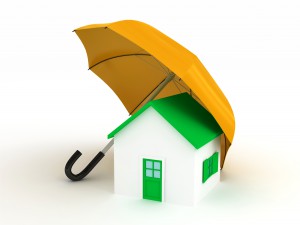The days of making a big claim against a local council when you trip and fall on a curb or gutter – because you were playing with your mobile phone as you were walking – are long gone.
In a landmark case some years ago, one famous judge heralded the change in trend in the “sue anyone” mentality when he said, “life is not a bowling green”.
He meant that as citizens we bear some personal responsibility for our own safety in public places.
But the risk of being sued by someone who has suffered personal injury is still alive and well if you’re a private property owner.
And a recent case highlighted just how raw this issue still is.
The case involved a handyman who was engaged by a homeowner to trim a garden hedge.
While trimming the hedge he stepped back, with a chainsaw in hand, onto a metal grid over a drainpipe.
The grid collapsed and he fell and sadly died 17 days later.
His widow sued the homeowner for financial compensation suffered by her because of the loss of the family’s breadwinner.
It was accepted in the case that the owner didn’t know anything about the damaged grid but the judge said that this was irrelevant.
The court decided that owners had an obligation to be aware of any hazards on their property and warn visitors to the property of these dangers.
So, is this case an isolated incident and the whole issue more illusory then real?
I mean, if the property you own is an investment property and you have a professional managing the letting of the property, surely they’re responsible for these sorts of issues?
They’ll also have professional indemnity insurance to back them up in case they’re negligent in the carrying out of their duties.
‘Negligence’ sounds like a dirty word, but at the end of the day it’s still just honest human error.
Yes it’s true that as an investor you can try and hide behind the firewall of the rental manager and their insurance policy.
However, when people sue because they have suffered personal injuries, they invariably take a scattergun approach and sue everyone involved, including you as the owner.
How can you add some more barriers between you and someone looking to “have a go” and take away your hard-earned assets?
Insurance
Firstly, you need public liability insurance.
This is insurance that covers you in the case of slip and fall accidents and is relatively inexpensive.
You should have it for every property you own.
For investment properties, the cost is tax deductible.
You should also have this insurance for any property that you own and occupy as your home.
But the big sleeper is the potential liability that we all have as owner-occupiers of our homes that we reside in as private dwellings.
The risk of being sued by someone who has suffered personal injury is still alive and well if you’re a private property owner.
If you engage a builder or tradesperson to do work around your home, who have the appropriate licences and are registered with the building authority, then they’ll be protected by the usual insurances.
But all too often people who come and do work at your home don’t hold such registration or any insurance at all.
Think about it.
The person who comes to mow your loan, clean your windows, repair your fence or clean your house are often part-timers doing this work to subsidise their lifestyle as retirees or to financially support them in their role as parents.
If one of these people is injured while on your property then there will be no insurance backing them up.
This is where the greatest risk lies to homeowners.
Is there anything that you can do to protect yourself?
Yes, there is.
In my part of the world (Queensland), you can obtain a homeowner’s household workers policy for $50 through Work Cover Queensland.
You can even get this to cover holiday homes that you have which aren’t rented.
This insurance will protect you in the case of any financial claim resulting from someone being injured while working at your house.
Some other states also provide similar cover under their work cover/workers compensation schemes so this is well worth investigating.
A few insurance companies also offer domestic worker protection under their homeowner’s insurance policies.
This whole dialogue highlights once again the importance as a property investor of asset protection.
I mean, what’s the point of going to all this trouble and implementing strategies to create wealth so that you can pass this wealth onto future generations, when you’re exposed to actions by people looking to “have a go”?
The issue of which name to buy a property in is also something that should always be at the back of your mind.
Reduce your risk
When you acquire any property you should always give consideration to implementing strategies that quarantine or reduce the risk of someone “having a go”.
You can do this by acquiring properties in the name of a company acting as trustee for a trust.
That is, a company acting as trustee for a trust and not you personally would own the property.
You’d control the company trustee by being the directors and shareholders of it but you wouldn’t own it.
This still smells like, looks like and feels like personal ownership but it doesn’t have the sting in the tail of personal liability.
I’m strident in my promotion of this strategy and believe you need to embrace it if you’re in this for the long game and not just the short sprint.
Absorb it and this will serve you well in your life as a property investor




No comments:
Post a Comment